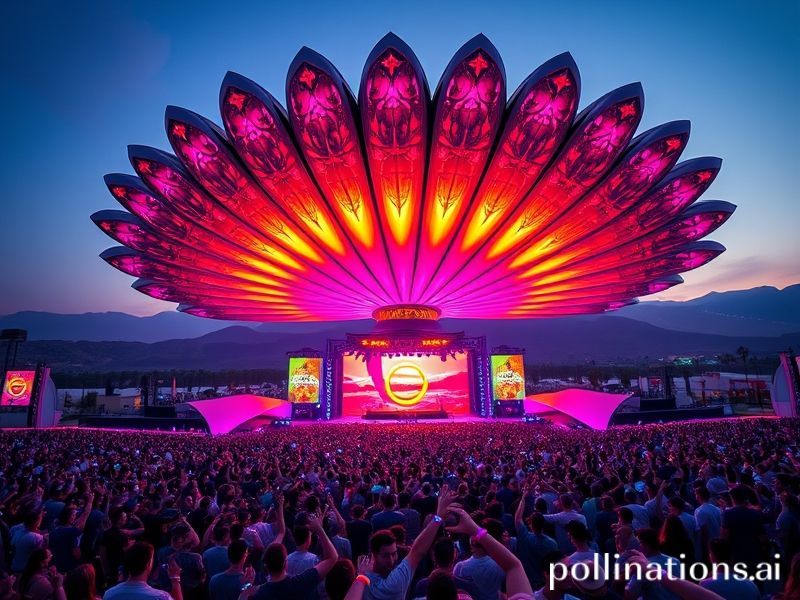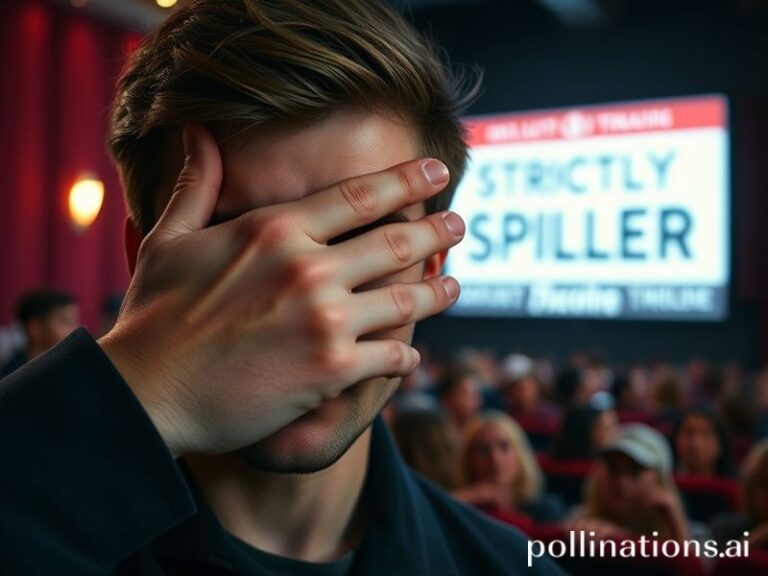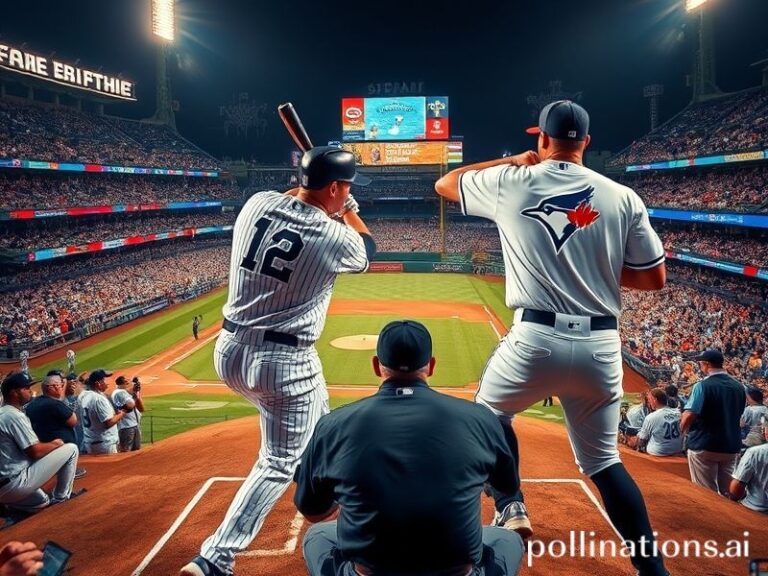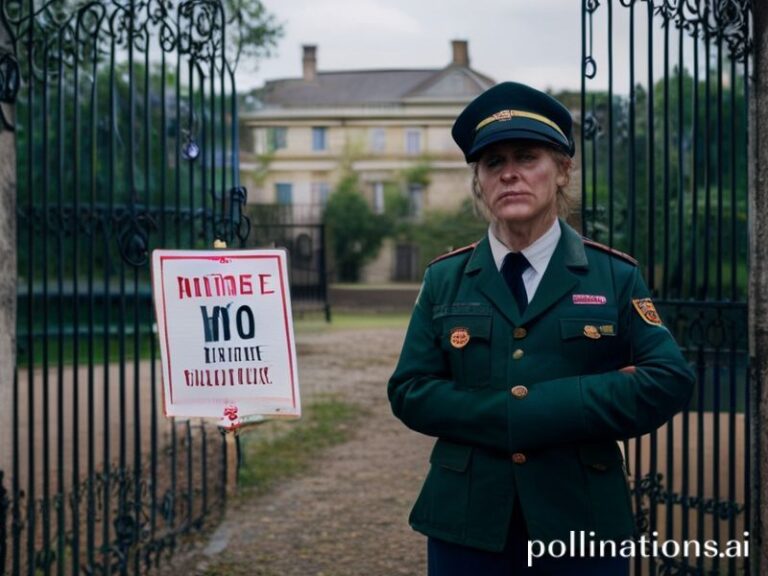Coachella 2026: The World’s Most Expensive Dress Rehearsal for the Apocalypse
Coachella 2026: The Last Festival Before the Water Wars
By Dave’s Foreign Correspondent, filed from a rapidly dehydrating Los Angeles
On the surface, Coachella 2026 looked the same as ever—grass that isn’t grass, wristbands that double as NFT passports, and a corporate lineup so synergistic it could run for office. But this year the polo fields doubled as an international petri dish, a place where global elites, climate refugees, and crypto-wealthy teenagers gathered to pretend the apocalypse was still optional.
The headliners? A holographic Rihanna (licensed from Barbados and projected via ElonStar satellites), a K-pop supergroup whose lyrics are 40% UN Sustainable Development Goals, and—because irony is now currency—Metallica, sponsored by a Swiss lithium mine. The real draw, though, was the water. VIP “Hydration Cabanas” offered Icelandic glacier cubes flown in on a Boeing Dreamliner retrofitted to burn palm oil. General-admission peasants queued for recycled sweat condensate politely rebranded as “Artisanal Perspirée.”
From a geopolitical standpoint, Coachella has become the Davos of pop culture, only with more sequins and less shame. Delegations arrived early. The EU sent a 200-person task force to test whether festival wristbands could double as carbon-credit wallets. Beijing dispatched TikTok influencers to soften its image after the South China Sea algae-bloom incident. Even the Taliban rolled up (influencer visas are surprisingly easy when you promise not to post). Their TikTok of a Talib doing the “Renegade” to Doja Cat broke a billion views before security confiscated the phone for “inappropriate ankle exposure.”
Meanwhile, the Global South watched on pirated streams, marveling at a world where people pay $19 for a slice of avocado toast while Lake Chad quietly disappears. Ghanaian satirists live-tweeted the event as “Gulfstream G6 Woodstock,” a phrase now trending from Lagos to Lahore. In Mumbai, Uber drivers staged a sympathy strike, demanding the same surge pricing Coachella’s helicopter shuttles enjoy. In São Paulo, protesters projected “Stop Dancing on Our Graves” onto a shuttered museum, timed perfectly with Lana Del Rey’s set.
The irony, of course, is that Coachella’s carbon footprint is now measured in small nations. This year’s footprint—roughly Honduras—was offset by planting drought-resistant cacti in Namibia that promptly died. But the festival’s real export isn’t music; it’s the template for luxury disaster-prep. Saudi Arabia’s Neom project has already ordered forty “Coachella Pods” (inflatable geodesic domes with solar skin and Spotify integration) to sprinkle along its Red Sea coastline. Even the Kremlin got in on the action, hiring the festival’s drone-light contractor to stage patriotic sky ballets over Moscow, timed to drown out anti-mobilization chants.
Back on the polo fields, climate scientists—there for “research,” wearing $400 bucket hats—passed out flyers reading “You Are the Control Group.” Attendees used them as rolling papers. A startup from Singapore sold $99 bottles of “pre-combustion nostalgia,” essentially aerosolized teen spirit captured from 1997. It sold out in minutes, proof that the market for manufactured yearning is more recession-proof than water itself.
Yet beneath the sponsored bliss, a quiet panic rippled. Wi-Fi slowed to 1998 speeds, revealing how fragile the illusion is. When the Ethereum blockchain hiccupped, 40,000 NFT tickets vanished, stranding influencers in a literal desert. Some bartered Instagram shout-outs for bottled water; others tried to mine Bitcoin on their phones to bribe security. For a brief, delicious moment, the Metaverse tasted like sand.
As the final drone swarm spelled “THANK YOU FOR YOUR ATTENTION” in seventeen languages, attendees filed back to idling black SUVs, each stocked with emergency desalination straws. Overhead, a satellite billboard reminded us that next year’s festival will be held on an artificial island in Dubai—assuming the Persian Gulf hasn’t evaporated by then.
Conclusion: Coachella 2026 wasn’t just a festival; it was a dress rehearsal for the end of the world, complete with VIP upgrades. The music was loud enough to drown out the glaciers, the merch booths sold survival kits disguised as fashion, and the only thing more carbonated than the beverages were the egos. If you missed it, don’t worry—there’ll be another one. Until there isn’t.







